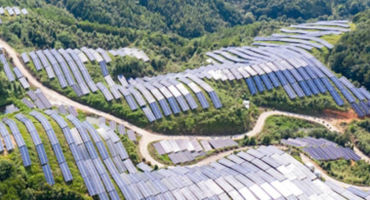The range of investable climate solutions continues to broaden and expand
Cost declines and increased market adoption are continuing in well-known areas such as renewables and electric vehicles and are likely to expand with ongoing scientific and technological innovation, for example, advances in solar materials and battery technology. These developments will be critical to the evolving market, but they also tend to be asset heavy and capital intensive.
Fortunately, there are also less capital-intensive solutions involving the application of existing technologies in end markets, which can drive efficiency while also reducing GHG emissions or increasing resilience to climate change. Sensors, connectivity, computing/analytics, artificial intelligence, and enterprise software and financing models, for example, can lead to smarter buildings and homes, connected and flexible energy grids, optimized manufacturing and supply chains, and new distribution and business models in the food and apparel sectors. Many of these business models help mitigate climate change not just by greening the supply of consumables but also by changing and optimizing demand.
Regarding adaptation, improved near-term weather and longer-term climate forecasting should help companies adjust their operations in real-time to account for extreme weather events and to incorporate future climate risk into long-term asset planning. Parametric weather insurance is emerging as a way for businesses and consumers to hedge their revenue or asset risk around weather-related risks. Together, we believe these combine into a wide range of potentially high-return, high impact opportunities, particularly within growth stage, climate tech companies.
At the same time, investors should not overlook that investing in these more illiquid private companies comes with specific risks and is therefore only appropriate for investors who can take a long-term approach as exiting an investment in the event of financial or sustainable underperformance may be hard to accomplish. Overall, transparency and governance may be more limited compared to investments in publicly listed companies. Moreover, some of these management teams may have less experience with public shareholder scrutiny and engagement than existing public companies.
Investors also need to ensure that the investee companies ultimately deliver real-world solutions in the fight against climate change, meaning rigorous measurement of actual impact is critical, both when identifying and monitoring investments.













